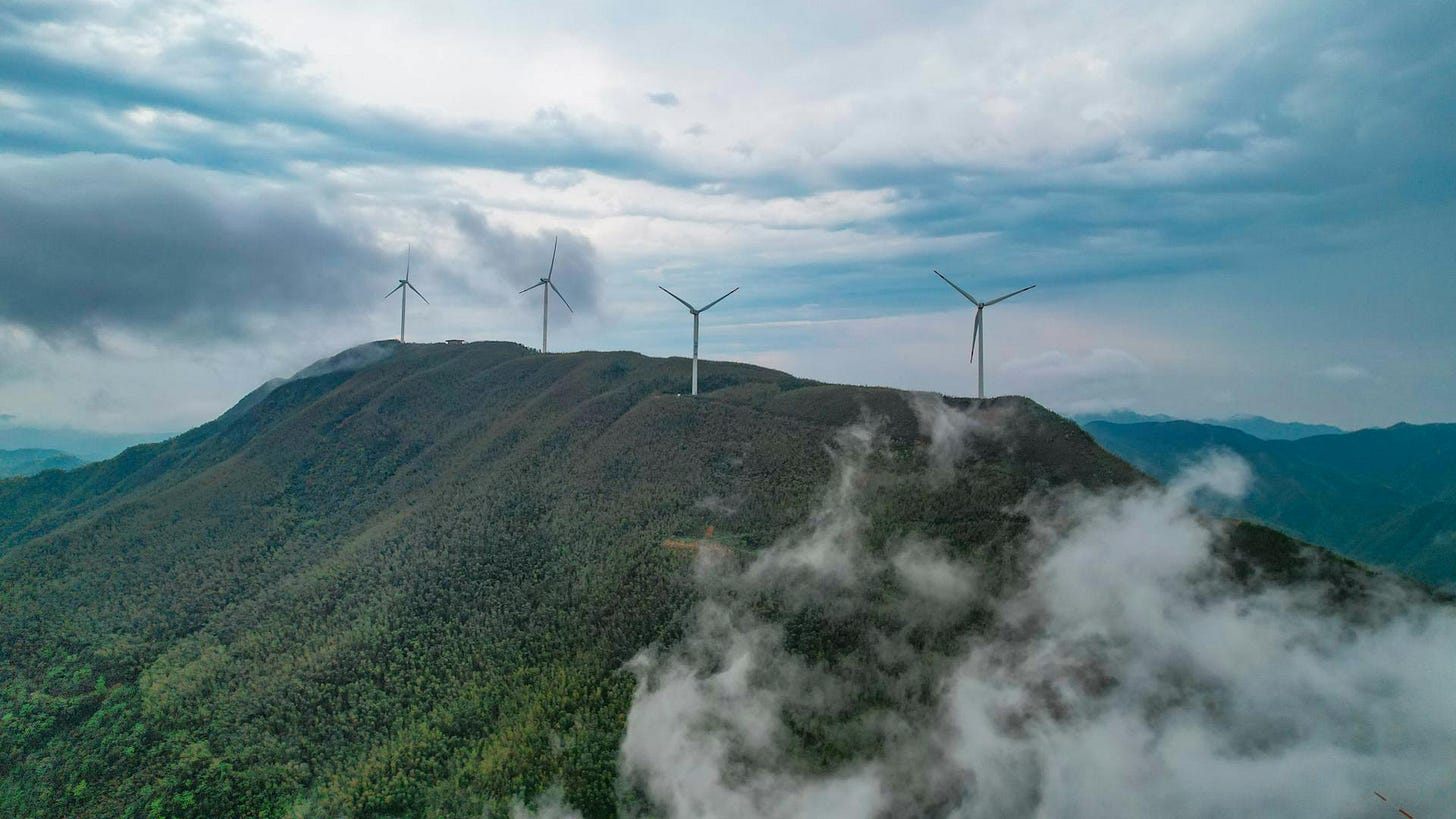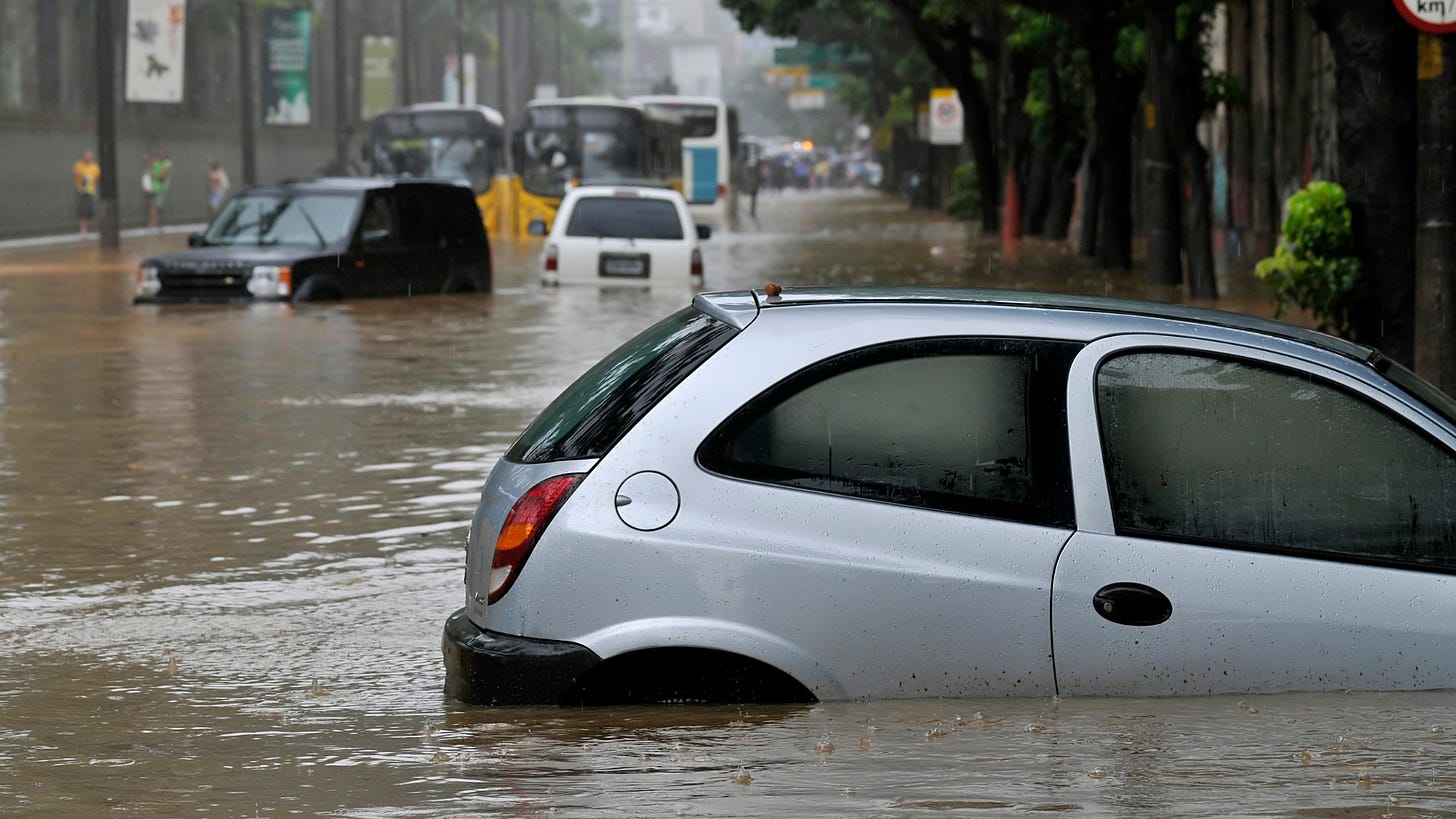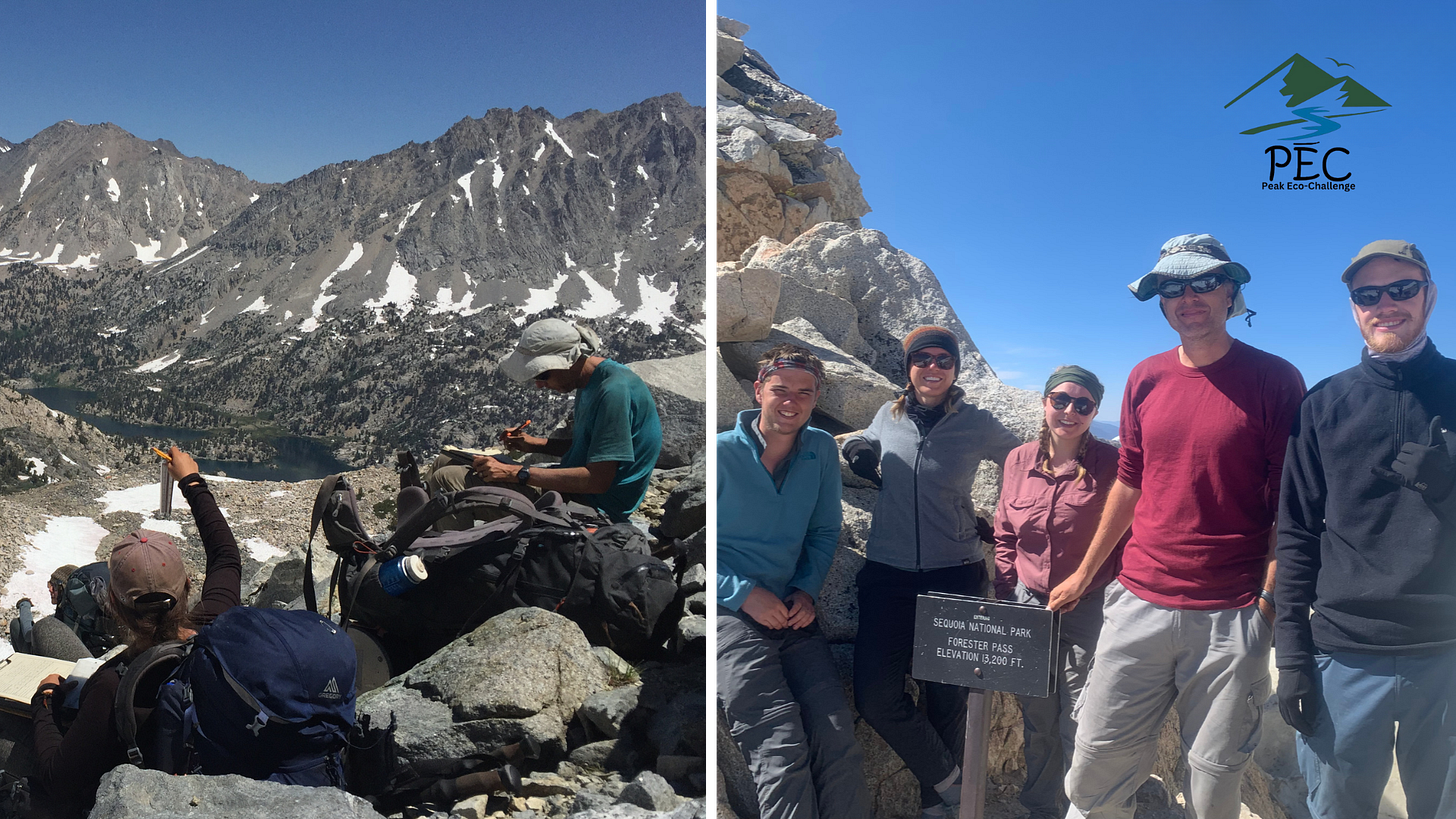How China's clean energy is changing the world
China's clean-energy exports cut emissions worldwide, more record-breaking heat and floods, and a Saving Us action story
China is a global leader in clean energy manufacturing. But did you know that most of the emissions reductions -- resulting from the solar panels, wind turbines, electric vehicles, batteries and more that it builds -- will go to other countries?
A new analysis by Carbon Brief highlights the huge impact this is having at the global scale. In 2024 alone, for example, China’s booming exports of clean-energy technologies are estimated to have slashed global carbon emissions by 1 percent.
It's true that manufacturing those items generated emissions. However, those emissions—110 million tonnes—will be offset in only six months. Over their operational lifetimes, these exported clean-energy technologies will avoid a cumulative 4 billion tons of emissions. That’s incredible!
China is also making clean-energy investments overseas, including building solar panel manufacturing plants abroad, and has pledged to stop supporting the development of coal-fired power plants abroad. This is a good example of how no country is an island, so to speak. What happens in one country can have an enormous impact on other countries. In the case of China, it's clearly impacting the entire world.The Mediterranean has been in the grips of a sweltering heat wave that has sent temperatures soaring throughout the region, including Greece, Spain, Italy, Portugal, and Turkey, which recorded its highest temperature on record on Friday: 50.5 degrees Celsius (113F) in the southeastern city of Silopi near the Iraqi border.
Above normal temperatures coupled with dry conditions have led to deadly wildfires in Turkey, where 13 people died the week of July 21 fighting a blaze in Eskisehir province. Turkish President Recep Tayyip Erdogan said his country was “faced with a truly great disaster” from the fires, which some 25,000 personnel were fighting across the country.
Finland is also experiencing record-breaking heat, hitting temperatures above 30 degrees Celsius for 19 consecutive days as of last week Wednesday. The previous all-time heat record was 13 consecutive days above 30 degrees Celsius, in 1972.
And flooding in Beijing, China, has left at least 30 people dead and forced thousands more out of their homes. Meanwhile, in Alberta, Canada, the fifth-wettest July on record resulted in thousands of basements flooded, submerged cars, and inundated parks. And in the U.S., heavy rainfall in Detroit caused a ground stop at the airport and flooded a tunnel there, while flash floods across New York and New Jersey led to states of emergency being declared in many areas.
Of course we’ve had extreme heat and flood before: and the worst damages occur when people build and live in areas already vulnerable to flood and heat. However, as the planet warms, it’s loading the weather dice against us. Heatwaves are more frequent and more severe; heavy rainfall is increasing; and all of this puts us at risk.
As I often say, “It’s not about saving the planet: it’s about saving us!”
The Mediterranean is in the grips of a sweltering heat wave that has sent temperatures soaring throughout the region, including Greece, Spain, Italy, Portugal, and Turkey, which recorded its highest temperature on record on Friday: 50.5 degrees Celsius (113F) in the southeastern city of Silopi near the Iraqi border.
Above normal temperatures coupled with dry conditions have led to deadly wildfires in Turkey, where 13 people died the week of July 21 fighting a blaze in Eskisehir province. Turkish President Recep Tayyip Erdogan said his country was “faced with a truly great disaster” from the fires, which some 25,000 personnel were fighting across the country.
Finland is also experiencing record-breaking heat, hitting temperatures above 30 degrees Celsius for 19 consecutive days as of last week Wednesday. The previous all-time heat record was 13 consecutive days above 30 degrees Celsius, in 1972.
And flooding in Beijing, China, has left at least 30 people dead and forced thousands more out of their homes. Meanwhile, in Calgary, Canada, the fifth-wettest July on record resulted in thousands of basements flooded, submerged cars, and inundated parks. And in the U.S., heavy rainfall in Detroit caused a ground stop at the airport and flooded a tunnel there, while flash floods across New York and New Jersey led to states of emergency being declared in many areas.
Of course we’ve had extreme heat and flood before: but as the planet warms, it’s loading the weather dice against us. Heatwaves are more frequent and more severe; heavy rainfall is increasing; and all of this puts us at risk. As I often say, “It’s not about saving the planet: it’s about saving us!”
When it comes to climate action, one of the most important things we need to know is that we don’t have to be rich or famous to become a climate leader. In fact, most rich and famous people tend to lag behind what others are doing! And the inspiration this week is a perfect example of this.
John Rabe is a retired school principal from California who wrote to me recently to share the climate-friendly steps he’s started taking since reading my book, Saving Us. As many of us do, John started with a look at his personal life. He switched to an electric car that he charges at home from his solar system (and battery backup), swapped his gas furnace for a heat pump, and plans to purchase an electric water heater to ensure his home “will spew little if any carbon into the atmosphere,” he says.
After reading Saving Us, though, he knew he couldn’t stop there. So John and his wife, Izzy (who also drives an electric car), make sure to talk about these low-carbon swaps they’ve made with people they know. Through doing so, they’ve convinced more than 20 other people to install solar on their own homes. People regularly approach him in parking lots to ask questions about his Rivian pickup truck and he is certain he has convinced more than a few people to buy an EV as well.
Connecting with others in the community is also important, to help achieve larger goals. And research shows that people who spend more time in nature, particularly in their youth, makes us feel more connected to nature, which means we are more likely to care about it and take action ourselves in the future. So John has teamed up with Jim Haufler, president of Friends of Auburn Ravine, to help reintroduce salmon and steelhead to smaller streams and rivers in northern California. Together with Dr. Michael McGrann, the head of the Institute for Biodiversity and the Environment, he also helped start a hiking program for students on the Pacific Crest Trail (see photos below!).John isn’t resting on his laurels: he’s actively looking for more actions he can take, including going door to door to talk with his neighbors about climate change and what can be done about it. And I know this works!
If you’ve read Saving Us, you might remember hearing about Howard Kirkham, a retired Public Service director from British Columbia who informally surveys people he meets by asking, “On a scale from 1 to 10—1 meaning climate change doesn’t matter, 10 meaning it’s the world’s biggest challenge—how would you rate it?” He's found most responded with high numbers and were keen to discuss the issue!
John and Izzy are great examples of how we can take individual action, and connect with others to catalyze even greater change. Are you or is someone you know doing something you think I should share? I would love to hear more!
John isn’t resting on his laurels: he’s actively looking for more actions he can take, including going door to door to talk with his neighbors about climate change and what can be done about it. And I know this works!
If you’ve read Saving Us, you might remember hearing about Howard, a runner from British Columbia who informally surveys people he meets by asking, “On a scale from 1 to 10—1 meaning climate change doesn’t matter, 10 meaning it’s the world’s biggest challenge—how would you rate it?” He found most responded with high numbers and were keen to discuss the issue!
John and Izzy are great examples of how we can take individual action, and connect with others to catalyze even greater change. Are you or is someone you know doing something you think I should share? I would love to hear more!










Great piece - and great way to take action! Talking up our everyday climate solutions helps turn people from doom to hope. Yale Climate surveys have found that 72% of Americans now believe climate change is happening but less than 40% talk about it regularly. Be the one talking about it!
Is this piece very poorly edited, or is my tablet doing something wrong?